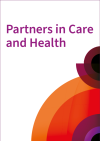Practice
Understanding and describing the effectiveness of safeguarding practice is central to evidencing the delivery of Care Act 2014 duties regarding safeguarding adults by local authorities.
Revisiting safeguarding practice by the Chief Social Worker for England provides guidelines on practice and states that:
It is important that senior leaders use this document as part of a process to assure themselves of the quality and responsiveness of their adult safeguarding work.”
Safeguarding practice should be strengths-based, as evidenced by the Making Safeguarding Personal approach.
Guidelines on Strengths-based approach: Practice Framework and Practice Handbook emphasise that:
Strong leadership that supports and enables the change to occur, by behaving in a way aligned with the strengths-based practice themselves, is the best way to cultivate and reinforce a culture that is relationship based and strengths- based. Strong leadership will take actions that promote the importance of strengths-based ethos.”
The Adult Principal Social Worker (PSW) Network and resources are hosted by Research in Practice (RIP) which assures social work and professional practice developments, following priorities agreed with the Chief Social Worker for England (Adults). The DASS should consult with their PSW on the current tools that are available and accessible through PSW networks to support analysis and improvement in safeguarding adults’ practice.
Making Safeguarding Personal (MSP) is a well-established strengths-based approach to safeguarding, which was embedded in the care and support statutory guidance. Understanding how to assure MSP is embedded, with effective quality assurance and oversight is key for the DASS to be satisfied staff are carrying out procedures properly and consistently to meet the needs of individuals and fulfil Care Act duties. There is a range of resources, including toolkits and case studies to support developing MSP in practice, developed by ADASS, Local Government Association (LGA) and partners on the LGA website.
Case file audit is key to ongoing learning and improvement in safeguarding practice. Some examples of case file audit tools and guidance/methodologies are offered. These have been shared by local authorities/Safeguarding Adults Boards to support others in developing audit methodologies.
The Social Care Institute of Excellence (SCIE) provides analysis, information and advice tools on strategic as well as on professional practice both for single agency and multi-agency audits.
North West ADASS region has developed a social work quality assurance tool along with an explanatory presentation, and benchmarking tool. The benchmarking tool draws on the BASW ethical framework social Wwrk and the TLAP ‘Making It real’ statements. The rationale for designing this tool was to be able to benchmark whether social work practitioners were delivering ‘Fit for purpose’ and ‘Right first time’ high quality social work services. The purpose is to support organisations with defining what “good social work” looks like, how it can be measured, and how it can be improved. The tool has been designed to be used in conjunction with and to support organisations using local social work quality assurance and practice improvement frameworks.
Safeguarding pathways
The local authority has responsibility for responding to all concerns and undertaking or authorising enquiries under section 42, which constitutes the key safeguarding pathway. Identifying actual or potential abuse and deciding which pathway to take to address risks, whether a safeguarding enquiry or other helps to determine what action is to be taken and by whom.
The framework developed on behalf of ADASS and LGA offers support in making decisions about whether or not a reported safeguarding adults concern requires a statutory enquiry under the Section 42 (ii) duty of the Care Act 2014. Resources are available to support consistent interpretation of the statutory guidance on concerns and enquiries.
Making decisions on the duty to carry out safeguarding adults enquiries
The LGA has produced a framework to help support in making decisions about whether or not a reported safeguarding adults concern becomes a Section 42 (ii) enquiry. The ratio of concerns that become Section 42(ii) enquiries is often referred to as the ‘conversion rate’. This can provide insight into patterns of local safeguarding activity. The Revisiting safeguarding practice by the Chief Social Worker for England (Adults) says that local authorities “should also check themselves against other like local authorities in the application of Section 42 and conversion of concerns to enquiries to ensure consistent application of the Care Act across England. This will require PSWs and DASSs across regions to work closely to develop parity of application." However, these are not performance indicators and should not be interpreted as such. Local tools have been developed to guide decision making, such as Portsmouth Safeguarding Adults Board’s ‘Quality of referrals and decision making.’
Safeguarding activity and outcomes
A starting point for a DASS is to know what the profile of safeguarding activity and practice is in their area. Understanding from both quantitative and qualitative data what happens with safeguarding concerns and conversion to statutory safeguarding enquiries. The NHS Digital Safeguarding Annual Collection (SAC) provides information for comparison on a range of safeguarding activity on an annual basis. This includes the voluntary return on Making Safeguarding Personal, which is key to evidencing that people are involved and determining the outcomes of safeguarding activity that supports them to keep themselves safe.
The SAB Manager Network has developed a toolkit which enables and supports the development of data sets and assurance tools including assurance frameworks and stories of difference as examples. This intelligence can inform emerging themes and priorities for Safeguarding Adults Boards and local authorities. See National Data Toolkit Framework
The Making Safeguarding Personal Outcomes framework report (May 2018) underlines the importance of including qualitative information in developing an understanding of the difference that safeguarding support makes for people. It offers support for developing audit questions and methodologies, including multi agency safeguarding case file audit and quality standards guidance on safeguarding audit provided by the LGA/ADASS. Case file audit can also be used to establish whether safeguarding outcomes have been met for people with lived experience.

